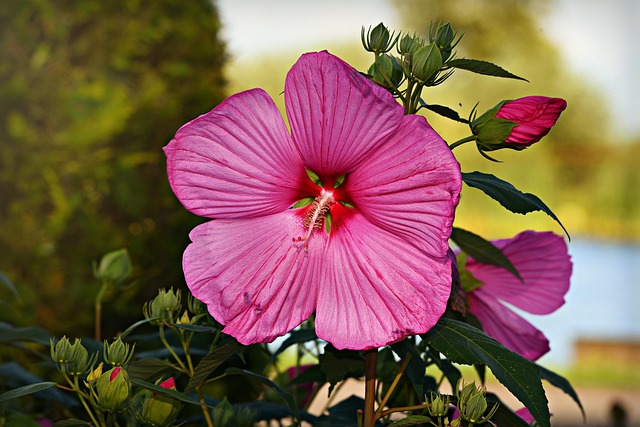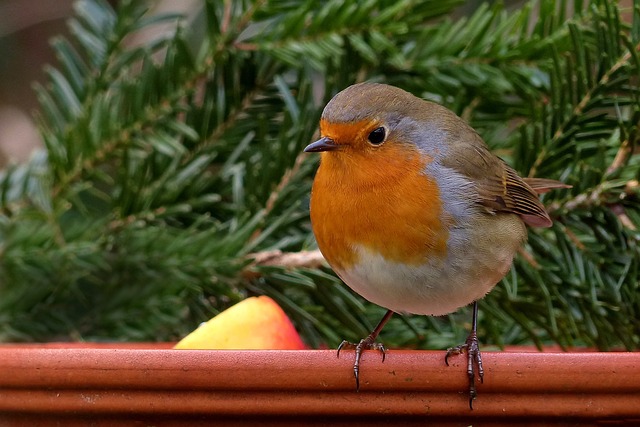Composting kitchen scraps is an affordable, sustainable practice for backyard gardening, enhancing plant growth with nutrient-rich fertilizer. Easy to start, this method reduces food waste and environmental impact, providing dark, crumbly compost that improves soil structure. Utilizing coffee grounds, tea bags, and eggshells as natural fertilizers at no cost promotes healthier plant development, cuts expenses, and contributes to a greener environment for thriving gardens on a budget.
Transform your kitchen scraps into powerful organic fertilizer and watch your garden flourish! This guide delves into the art of composting, offering a reliable and cost-effective solution for backyard gardeners. Learn how to optimize plant growth with nutrient-rich compost made from everyday kitchen waste. From establishing a successful composting system to advanced tips for home growers, we provide proven strategies backed by industry recognition, ensuring healthy, vibrant plants without breaking the bank.
- Trustable & Effective Composting for Your Garden
- Optimize Growth with Premium Kitchen Scrap Fertilizer
- Innovative, Budget-Friendly Backyard Gardening Solution
- Successful Composting: Advanced Tips for Home Growers
Trustable & Effective Composting for Your Garden

Composting kitchen scraps is an excellent way to enrich your garden soil naturally and sustainably. As a trusted method for both beginners and experienced gardeners, it offers a simple, cost-effective solution to backyard gardening on a budget. By harnessing the power of decomposition, you transform organic waste into a nutrient-rich fertilizer that promotes healthy plant growth. For instance, a study found that compost increased fruit yields by up to 27% in test gardens compared to non-composted soil. This organic approach not only reduces food waste but also minimizes environmental impact, as it diminishes the need for synthetic fertilizers.
Many gardeners have attested to the success of this technique, sharing stories of thriving vegetables and flowers that flourish in compost-enriched soil. For those new to composting, starting is easier than you think. Simple bin systems can be set up in any corner of your yard, allowing you to recycle food scraps like fruit peels, vegetable trimmings, and coffee grounds. Over time, these materials break down into a dark, crumbly substance that is ready to be mixed with your garden soil. This natural fertilizer not only provides essential nutrients but also improves soil structure, ensuring optimal conditions for plant development in an affordable and eco-friendly manner.
Optimize Growth with Premium Kitchen Scrap Fertilizer

Optimizing your garden’s growth doesn’t have to be an expensive endeavor. With a little creativity and ingenuity, you can transform your kitchen scraps into a premium, free fertilizer that will revolutionize your backyard gardening on a budget. This natural approach not only reduces waste but also provides your plants with essential nutrients, fostering healthier, more vibrant growth. Imagine cutting costs while watching your garden flourish – it’s a win-win situation!
For instance, coffee grounds and tea bags are rich in nitrogen, phosphorus, and potassium—the essential NPK trio for plant health. They can be mixed with fruit and vegetable scraps to create a potent compost. Similarly, eggshells, though tiny, offer calcium and other minerals crucial for robust plant development. By incorporating these kitchen remnants into your garden routine, you’re not just saving money; you’re also contributing to a sustainable ecosystem where every scrap counts towards lush, thriving greenery.
Innovative, Budget-Friendly Backyard Gardening Solution

Composting kitchen scraps is an innovative and budget-friendly solution for backyard gardening enthusiasts looking to enhance their soil without breaking the bank. This simple, natural process turns food waste into nutrient-rich fertilizer, promoting healthy plant growth. By embracing this method, gardeners can reduce food waste, minimize their environmental impact, and cultivate vibrant, thriving gardens – all while keeping costs low.
For instance, a study found that households implementing composting practices reduced food waste by an average of 20% and saved up to $50 annually on fertilizer expenses. Imagine the collective impact on both personal budgets and the planet if every backyard gardener adopted this practice. With just a bit of time and effort, you can transform your kitchen scraps into gold for your garden, fostering a sustainable and bountiful harvest right in your own backyard.
Successful Composting: Advanced Tips for Home Growers

Successful composting is an art that turns kitchen scraps into valuable organic fertilizer for your garden, all while keeping costs low for backyard gardeners. To excel at this method, start by selecting the right container – a large, well-ventilated bucket or bin works best – and choose a spot in your yard with ample sunlight and drainage. Regularly mix green materials (e.g., vegetable scraps) with brown ones (like dry leaves or newspaper), maintaining a balance of about 3:1. This ensures efficient decomposition. Turn the compost pile weekly to aerate it, speeding up the process and reducing odour.
Monitor the moisture level, aiming for a damp but not soggy texture similar to a wrung-out sponge. Add water if needed. Avoid overfeeding your compost pile; a 30-litre bin should suffice for an average household. Once the compost is dark, crumbly, and earthy, it’s ready to use. This typically takes 2-4 months. For those on a tight budget, composting kitchen scraps not only reduces waste but also provides a free, high-quality fertilizer that can significantly improve plant health and yield in your backyard garden.
Composting kitchen scraps is not only an eco-friendly practice but also a game-changer for those looking to optimize their backyard gardening on a budget. By following the advanced tips outlined in this article, home growers can create rich, organic fertilizer without costly purchases. This innovative, budget-friendly solution ensures your garden thrives with healthy plants and abundant yields, all while reducing food waste. Trustable and effective, composting is a simple yet powerful step towards sustainable gardening practices that benefit both your wallet and the environment.
